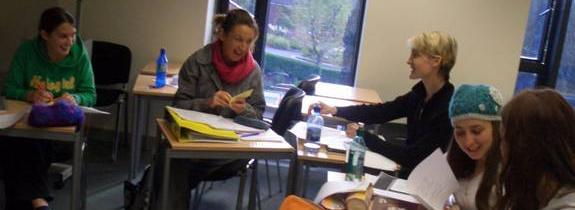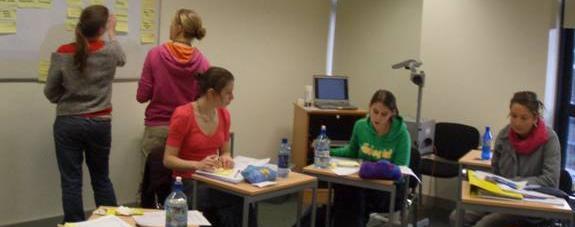Problem Based Learning
Problem Based Learning
Problem Based Learning (PBL) is a system of integrated learning that recognises the dynamic complexity of the current information age. Professional communities worldwide expect graduates to have more than specific knowledge in particular areas; the benchmark in learning is to be able to apply knowledge in a sophisticated way to solve real-life problems efficiently. In contrast to traditional methods of teaching in which students sit passively listening, writing and performing the “consumerist” task of being an audience to a lecturer, students in a PBL curriculum are active learners who plot their own journey in the process of acquiring knowledge. Specific subject learning is replaced with a holistic stance to the achievement of knowledge. As such, it is students who set their own goals by collaborating with each other in order to solve a problem (or trigger) that is presented to them by their facilitator; thus learning is through real life contexts in which there is social interaction. To achieve this, students are divided into small groups in which brainstorming occurs to determine what the relevant issues might be in order to solve the problem. Students define questions to ask, and then go about trying to answer those questions by finding resources in the University Library, the Internet and the academic community. There are six core characteristics of PBL as identified by Barrows (1996).

-
Learning is student-centred
-
Learning is in small groups
-
The lecturer is a facilitator or guide
-
Realistic problems are presented to students to solve
-
The problems are tools to acquiring knowledge
-
New information is acquired through self-directed learning

Some of the perceived (and experienced) advantages of a PBL approach for a Speech and Language Therapy course are:
-
Early and explicit emphasis on enquiry-led learning
-
Development of independent learning strategies and skills
-
Opportunities for integration of knowledge from core areas, and immediate application of information to issues which are professionally relevant
-
Avoidance of information overload
-
Development of communication skills and critical thinking by means of tutorials
-
Development of teamwork abilities by means of tutorials
-
Careful monitoring of students’ performance using tutorials, reflective journals and weekly written work
-
Careful control of student workloads
